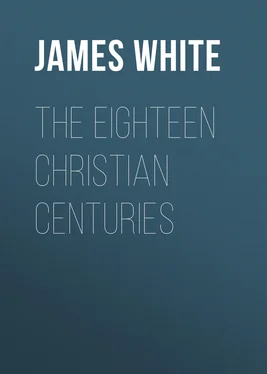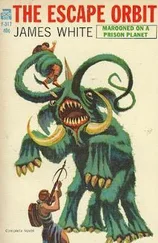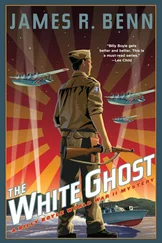James White - The Eighteen Christian Centuries
Здесь есть возможность читать онлайн «James White - The Eighteen Christian Centuries» — ознакомительный отрывок электронной книги совершенно бесплатно, а после прочтения отрывка купить полную версию. В некоторых случаях можно слушать аудио, скачать через торрент в формате fb2 и присутствует краткое содержание. Жанр: foreign_prose, История, foreign_edu, foreign_antique, на английском языке. Описание произведения, (предисловие) а так же отзывы посетителей доступны на портале библиотеки ЛибКат.
- Название:The Eighteen Christian Centuries
- Автор:
- Жанр:
- Год:неизвестен
- ISBN:нет данных
- Рейтинг книги:4 / 5. Голосов: 1
-
Избранное:Добавить в избранное
- Отзывы:
-
Ваша оценка:
- 80
- 1
- 2
- 3
- 4
- 5
The Eighteen Christian Centuries: краткое содержание, описание и аннотация
Предлагаем к чтению аннотацию, описание, краткое содержание или предисловие (зависит от того, что написал сам автор книги «The Eighteen Christian Centuries»). Если вы не нашли необходимую информацию о книге — напишите в комментариях, мы постараемся отыскать её.
The Eighteen Christian Centuries — читать онлайн ознакомительный отрывок
Ниже представлен текст книги, разбитый по страницам. Система сохранения места последней прочитанной страницы, позволяет с удобством читать онлайн бесплатно книгу «The Eighteen Christian Centuries», без необходимости каждый раз заново искать на чём Вы остановились. Поставьте закладку, и сможете в любой момент перейти на страницу, на которой закончили чтение.
Интервал:
Закладка:
In such hands as these the fortune of mankind was safe. A pity that the father’s feelings got the better of his judgment in the choice of his successor. It is the one blot on his otherwise perfect disinterestedness. In dying, with such a monster as Commodus ready to leap into his seat, he must have felt how inexpressibly valuable his life would be to the Roman people. He perhaps saw the danger to which he exposed the world; for he committed his son to the care of his wisest counsellors, and begged him to continue the same course of government he had pursued. Perhaps he was tired of life, perhaps he sought refuge in his self-denying philosophy from the prospect he saw before him of a state of perpetual struggle and eventual overthrow. When the Tribune came for the last time to ask the watchword of the day, “Go to the rising sun,” he said; “for me, I am just going to set.”
And here the history of the Second Century should close. It is painful to go back again to the hideous scenes of anarchy and crime from which we have been delivered so long. What must the sage counsellors, the chosen companions and equals in age of the Antonines, have thought when all at once the face of affairs, which they must have believed eternal, was changed?—when the noblest and wisest in the land were again thrown heedlessly into the arena without trial?—when spies watched every meal, and the ferocious murderer on the throne seemed to gloat over the struggles of his victims? Yet, if they had reflected on the inevitable course of events, they must have seen that a government depending on the character of one man could never be relied on. Where, indeed, could any element of security be found? The very ground-work of society was overthrown. There was no independent body erect amid the general prostration at the footstool of the emperor. Local self-government had ceased except in name. All the towns which hitherto had been subordinate to Rome, but endowed at the same time with privileges which were worth defending, had been absorbed into the great whirlpool of imperial centralization, and were admitted to the rights of Roman citizenship,—now of little value, since it embraced every quarter of the empire. Jupiter and Juno, and the herd of effete gods and goddesses, if they had ever held any practical influence over the minds of men, had long sunk into contempt, except in so far as their rich establishments were defended by persons interested in their maintenance, and the processions and gaudy display of a foul and meretricious worship were pleasing to the depraved taste of the mob. But the religious principle, as a motive of action, or as a point of combination, was at an end. Augurs were still appointed, and laughed at the uselessness of their office; oracles were still uttered, and ridiculed as the offspring of ignorance and imposture; conflicting deities fought for pre-eminence, or compromised their differences by an amalgamation of their altars, and perhaps a division of their estates. It was against this state of society the early Fathers directed their warnings and denunciations. The world did certainly lie in darkness, and it was indispensable to warn the followers of Christ not to be conformed to the fashion of that fleeting time. Some, to escape the contagion of this miserable condition, when men were without hope, and without even the wretched consolation which a belief in a false god would have given them, fled to the wilds and caves. Hermits escaped equally the perils of sin and the hostility of the heathen. Believers were exhorted to flee from contamination, and some took the words in their literal meaning. But not all. Many remained, and fought the good fight in the front of the battle, as became the soldiers of the cross. In the midst of the anarchy and degradation which characterized the last years of the century, a society was surely and steadily advancing towards its full development, bound by rules in the midst of the helplessness of external law, and combined by strong faith, in a world of utter unbelief—an empire within an empire—soon to be the only specimen left either of government or mutual obligation, and finally to absorb into its fresh and still-spreading organization the withered and impotent authority which had at first seen in it its enemy and destroyer, and found it at last its refuge and support. Yet at this very time the empire had never appeared so strong. By a stroke of policy, which the event proved to be injudicious, Marcus Aurelius, in the hope of diminishing the number of his enemies, had converted many thousands of the barbarians into his subjects. They had settlements assigned them within the charmed ring. What they had not been able to obtain by the sword was now assured to them by treaty. But the unity of the Roman empire by this means was destroyed. Men were admitted within the citadel who had no reverence implanted in them from their earliest years for the majesty of the Roman name. They saw the riches contained in the stronghold, and were only anxious to open the gates to their countrymen who were still outside the walls.
But before we enter on the downward course, and since we are now arrived at the period of the greatest apparent force and extent of the Roman empire, let us see what it consisted of, and what was the real amount of its power.
Viewed in comparison with some of the monarchies of the present day, neither its extent of territory, nor amount of population, nor number of soldiers, is very surprising. The Queen of England reigns over more subjects, and commands far mightier fleets and armies, than any of the Roman emperors. The empire of Russia is more extensive, and yet the historians of a few generations ago are lost in admiration of the power of Rome. The whole military force of the empire amounted to four hundred and fifty thousand men. The total number of vessels did not exceed a thousand. But see what were the advantages Rome possessed in the compactness of its territory and the unity of its government. The great Mediterranean Sea, peopled and cultivated on both its shores, was but a peaceful lake, on which the Roman galley had no enemy to fear, and the merchant-ship dreaded nothing but the winds and waves. There were no fortresses to be garrisoned on what are now the boundaries of jealous or hostile kingdoms. If the great circuit of the Roman State could be protected from barbarian inroads, the internal defence of all that vast enclosure could be left to the civil power. If the Black Sea and the Sea of Azoff could be kept clear of piratical adventurers, the broad highway of the Mediterranean was safe. A squadron near Gibraltar, a squadron at the Dardanelles, and the tribes which might possibly venture in from the ocean—the tribes which, slipping down from the Don or the Dnieper, might thread their way through the Hellespont and emerge into the Egean—were caught at their first appearance; and when the wisdom of the Romans had guarded the mouths of the Danube from the descent, in canoe or coracle, of the wild settlers on its upper banks, the peace and commerce of the whole empire were secured. With modern Europe the case is very different. There are boundaries to be guarded which occupy more soldiers than the territories are worth. Lines are arbitrarily fixed across the centre of a plain, or along the summit of a mountain, which it is a case of war to pass. Belgium defends her flats with a hundred thousand men, and the marshes of Holland are secured by sixty thousand Dutch. The State of Dessau in Germany, threatens its neighbours with fifteen hundred soldiers, while Reuss guards its dignity and independence with three hundred infantry and fifty horse. But the Great Powers, as they are called, take away from the peaceable and remunerative employments of trade or agriculture an amount of labour which would be an incalculable increase to the riches and happiness of the world. The aggregate soldiery of Europe is upwards of five millions of men,—just eleven times the largest calculation of the Roman legions. The ships of Europe—to the smaller of which the greatest galleys of the ancient world would scarcely serve as tenders—amount to 2113. The number of guns they carry, against which there is nothing we can take as a measure of value in ancient warfare, but which are now the greatest and surest criterions of military power, amounts to 45,367. But this does not give so clear a view of the alteration in relative power as is yielded by an inspection of some of the separate items. Gaul, included within the Rhine, was kept in order by six or seven legions. The French empire has on foot an army of six hundred and fifty thousand men, and a fleet of four hundred sail. Britain, which was garrisoned by thirty thousand men, had, in 1855, an army at home and abroad of six hundred and sixty thousand men, and a fleet of five hundred and ninety-one ships of war, with an armament of seventeen thousand guns. The disjointed States which now constitute the Empire of Austria, and which occupied eight legions in their defence, are now in possession of an army of six hundred thousand men; and Prussia, whose array exceeds half a million of soldiers, was unheard of except in the discussions of geographers. 1 1 The following is a carefully compiled table of the forces of Europe in the year 1854-55. Since that time the Russian fleet has been destroyed, but the diminution has been more than counterbalanced by the increased navies of the other powers. Military Forces of Europe in 1855. 1 Indian army 250,000, and militia 145,000, not included; making a total of 660,000 2 Taking an average of ten men to each gun, the sailors will be 453,670; which gives a total of fighting-men, 5,064,899!!!
Интервал:
Закладка:
Похожие книги на «The Eighteen Christian Centuries»
Представляем Вашему вниманию похожие книги на «The Eighteen Christian Centuries» списком для выбора. Мы отобрали схожую по названию и смыслу литературу в надежде предоставить читателям больше вариантов отыскать новые, интересные, ещё непрочитанные произведения.
Обсуждение, отзывы о книге «The Eighteen Christian Centuries» и просто собственные мнения читателей. Оставьте ваши комментарии, напишите, что Вы думаете о произведении, его смысле или главных героях. Укажите что конкретно понравилось, а что нет, и почему Вы так считаете.












